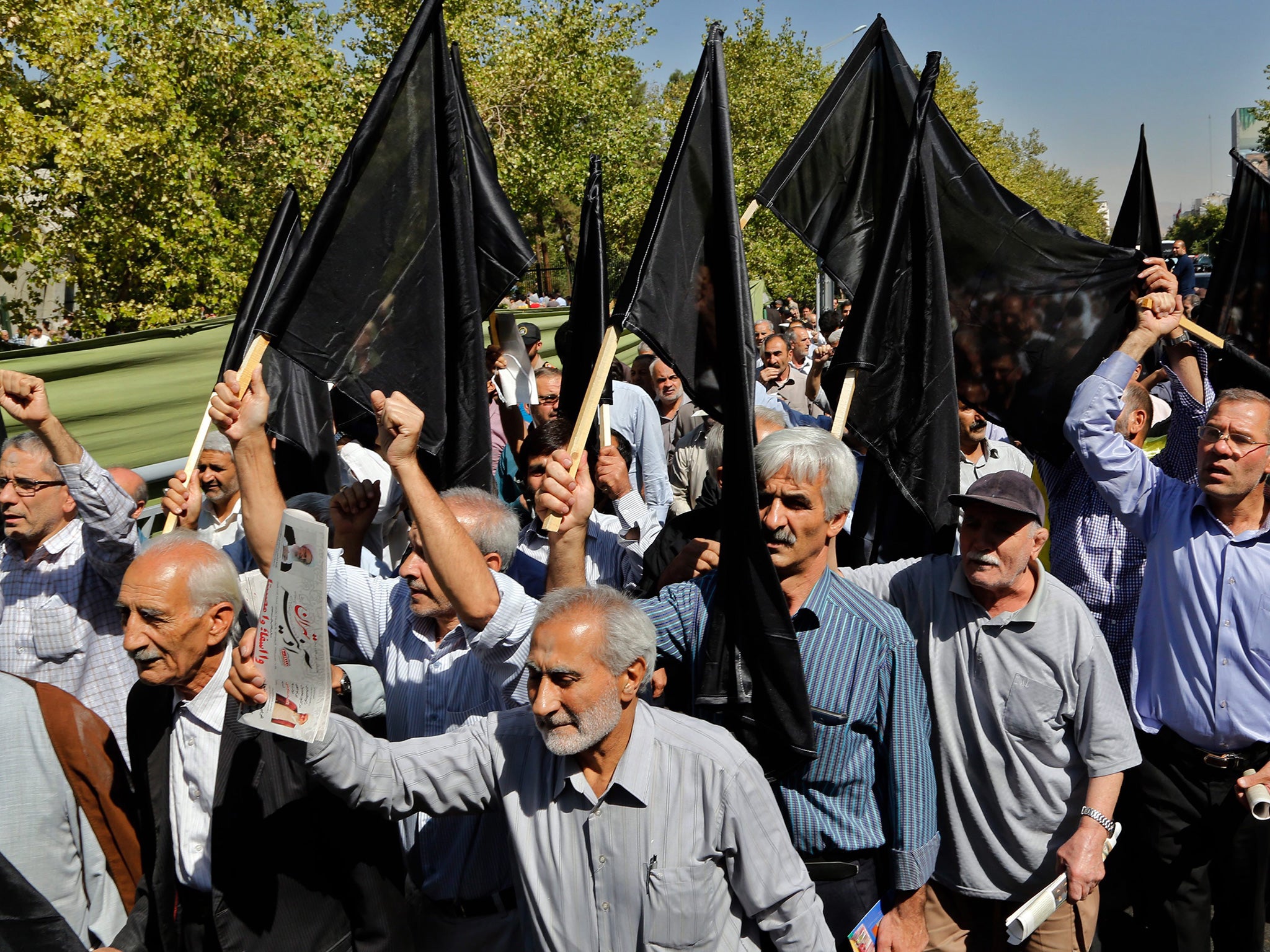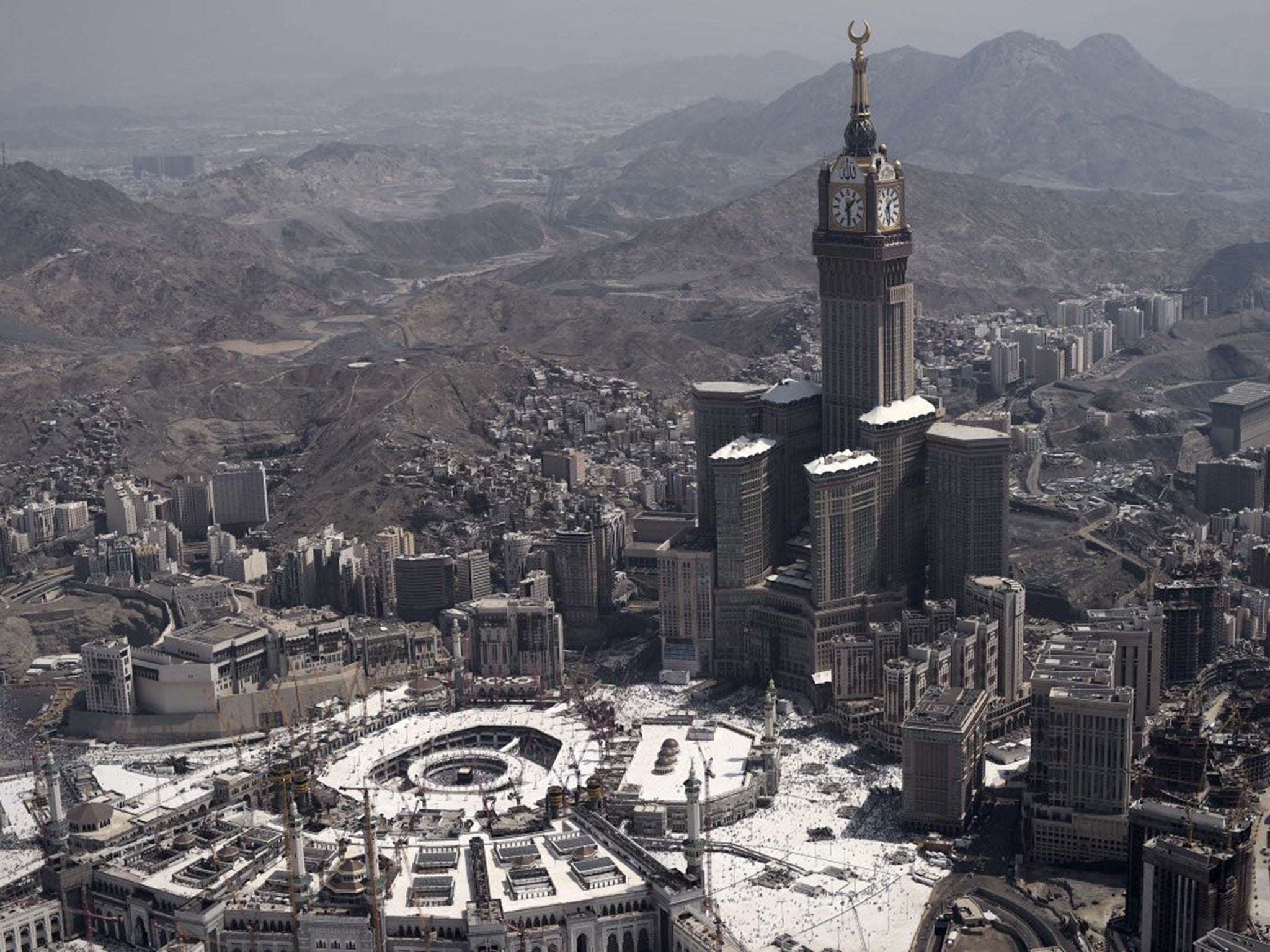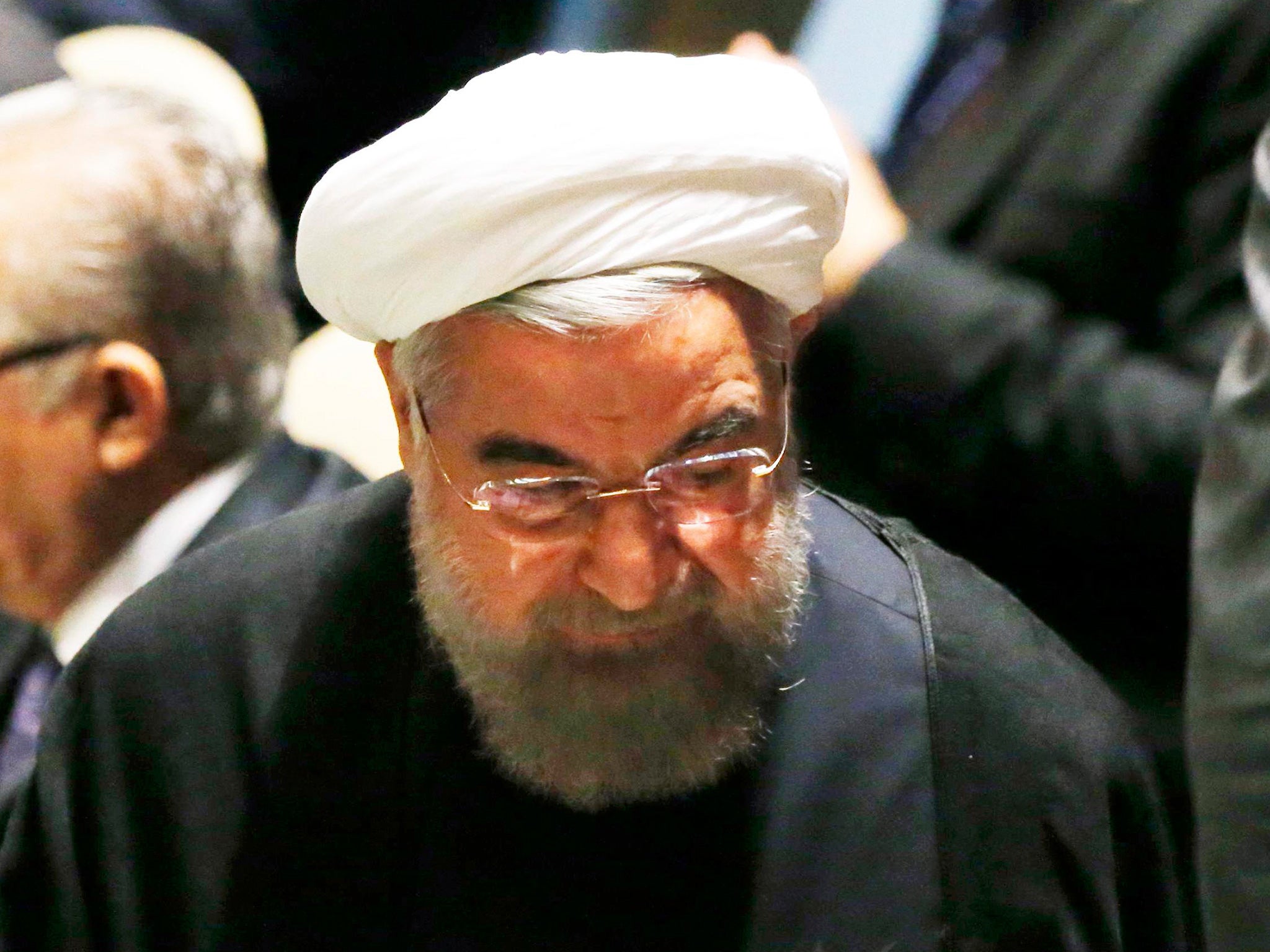Hajj stampede: Muslim world rounds on Saudi Arabia amid claims Prince's convoy closed roads and led to crush
As Saudi rulers struggle to excuse the Hajj disaster, Muslim leaders from Nigeria to arch-rival Iran have unleashed harsh criticism of the ‘incompetent’ dynasty tasked with protecting pilgrims

Your support helps us to tell the story
From reproductive rights to climate change to Big Tech, The Independent is on the ground when the story is developing. Whether it's investigating the financials of Elon Musk's pro-Trump PAC or producing our latest documentary, 'The A Word', which shines a light on the American women fighting for reproductive rights, we know how important it is to parse out the facts from the messaging.
At such a critical moment in US history, we need reporters on the ground. Your donation allows us to keep sending journalists to speak to both sides of the story.
The Independent is trusted by Americans across the entire political spectrum. And unlike many other quality news outlets, we choose not to lock Americans out of our reporting and analysis with paywalls. We believe quality journalism should be available to everyone, paid for by those who can afford it.
Your support makes all the difference.The Muslim world has rounded on Saudi Arabia in the wake of the Hajj pilgrimage stampede, with its regional rival Iran leading the criticism and blaming the disaster on the “incompetence” and “inexcusable negligence” of the kingdom’s rulers.
As thousands marched through the Iranian capital chanting “Death to the Saudi dynasty”, claims grew that the tragedy was caused by roads being closed to allow a royal party to attend a pilgrimage ritual, creating a fatal bottleneck and a crush in which at least 719 people died.
With more photographs appearing on social media showing piles of dead bodies in Mina, near Mecca, the international blame game threatened to damage further the already tense diplomatic relations between Saudi Arabia and Iran.

Arriving in New York to attend the UN General Assembly, Iran’s President Hassan Rouhani demanded that Saudi Arabia “take responsibility ... and fulfil its legal and Islamic duties in this regard.”
Iran said 131 of its citizens had died, the highest death toll among the non-Saudi nationals, and declared three days of national mourning. Hossein Amir Abdollahian, Iran’s Deputy Foreign Minister, said “Riyadh’s negligence” was “inexcusable”, echoing earlier strident criticism by Ayatollah Ali Khamenei, Iran’s supreme leader. Hamid Aboutalebi, Mr Rouhani’s deputy chief of staff, told the Fars news agency: “The incompetence of the Saudi Arabian government in this incident in obvious.”
The Iranians were backed by the former Iraqi Prime Minister, Nuri al-Maliki, widely regarded as an ally of Tehran, who said the Hajj should be taken out of Saudi control and placed under the authority of the multinational Organisation of Islamic Co-operation.

With the Saudis seeing their organisation of the Hajj as bolstering their claims to lead the Muslim world, the Iranian condemnation will do little to calm tensions between the two regional rivals.
These have already been stoked by the conflict in Yemen, where Sunni Saudi Arabia has been leading a coalition against Houthi rebels, suspecting Shia Iran of funding the insurgents.
As Crown Prince Mohammed bin Nayef said he had begun an immediate inquiry and promised “fast” results, Saudi officials yesterday insisted that the blame for the disaster lay with the pilgrims. Their failure to obey crowd control instructions, the officials claimed, led to a fatal crush near a bridge in Mina as the pilgrims walked towards the “stoning of the devil” ritual at the Jamarat pillars and others headed away from the site.
These allegations, however, were dismissed by the head of Nigeria’s Hajj delegation, the Emir of Kano Muhammadu Sanusi II, who told the BBC that the crush “happened on the designated ways for incoming and outgoing pilgrims. We are therefore urging the Saudi authorities not to apportion blame to the pilgrims for not obeying instructions.”
Mohammed Jafari, an adviser to Haj and Umra Travel, the UK’s first Hajj tour operator, reacted furiously to the Saudi Health Minister, Khalid al-Falih, who after blaming the disaster on overcrowding and a failure to follow instructions, added: “However, this is God’s will.”
Mr Jafari told BBC Radio 4’s Today programme: “It is not God’s will – it is man’s incompetence ... Talking to pilgrims, they say the main reason for this accident was that the King and his palace were receiving dignitaries. For this reason, they closed two entrances to where the [“stoning the devil” ritual] happens and they closed two roads ... which created two bottlenecks.”
He added: “There should be a criminal investigation.”
A Lebanese newspaper, the Arabic daily Al-Diyar, hypothesised that the one-way traffic directions were changed to allow the large convoy of Deputy Crown Prince Mohammad bin Salman al-Saud to pass through and reach Mina palace for a meeting with the King.
According to the report, which is not verified, the Prince and Defence Minister arrived, escorted by 350 security forces including 200 military and 150 policemen. Saudi officials have dismissed the report as “incorrect”.
Some witnesses also criticised Saudi crowd control and mentioned road closures. Ahmed Abu Bakr, a Libyan pilgrim, said: “The police had closed all entrances and exits to the pilgrims’ camp, leaving only one. I saw dead bodies in front of me and injuries and suffocation. They [the police] don’t even know the roads and the places around here.”
Survivors also claimed that the authorities had been slow to offer assistance. The BBC correspondent Tchima Illa Issoufou said: “People were chanting Allah’s name while others were crying, including children and infants. People fell on the ground ... but there was no one to give them a helping hand. Everybody seemed to be on their own.”
Other pilgrims, however, disagreed. Taheer Zaman from Dewsbury, West Yorkshire, told the BBC: “The organisation by the Saudi authorities has been fantastic ... The safety precautions are more than adequate. I would go as far as to say they are over the top.”
Join our commenting forum
Join thought-provoking conversations, follow other Independent readers and see their replies
Comments